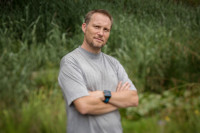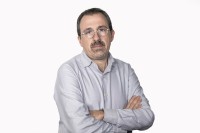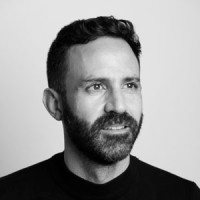Terrestrial Biodiversity
Societal Challenges
Wildlife & Invasive Species
AXA Chairs
France
2019.10.31
Invasive species: raising awareness with scenarios for the future
After years of warnings by scientists, global attention is finally given to the growing threat of climate change and the need to urgently cut planet-warming greenhouse gas emissions. But another massive driver of the environmental crisis still remains little known to the public: the scourge of biological invasion.
Biological invasions refer to human-assisted introductions of species outside their natural range, followed by their establishment, spread and impact in new ecosystems. Despite some very eloquent figures – invasive species cost the global economy hundreds of billions of dollars each year and are the second cause of biodiversity loss –, the problem has so far received little attention compared to other such human-induced environmental hazards. “Human-assisted introduction of invasive alien species has been a key factor in 54% of known animal extinctions and the sole factor in 20%”, reports prof. Franck Courchamp, a director of Research at the CNRS and a world-renowned expert in biodiversity dynamics. “Yet, it remains understudied”. Notably, he points out, “no scenarios of biological invasions exist as they do for climate change”. Recognizing the key role these tools played in raising awareness of the environmental crisis, the ecologist is leading a 5-year Chair research program, hosted by the University of Paris-Saclay, aimed at establishing such scenarios for invasive species. Specifically, the Invasion Biology AXA Chair aims to provide scenarios of biological invasions worldwide for the coming decades. In addition, the program will analyze and then predict which species precisely are likely to constitute the next wave of invaders, which regions are likely to be the most invaded in the near future, and what impacts can be expected both on biodiversity and the economy.
“As things stand, there is much cause for concern. With increasing international trade and a changing climate, increasing numbers of invasions are expected worldwide”, explains the chairholder. “Now is the time to act, but to do so, we need a better idea of what to expect. If you look at the issue of climate change, what made people pay attention was the broad panel of possibilities that depended of them. If you give them concrete examples of how their actions can positively or negatively impact the future, then you are likely to get a reaction. It becomes concrete for everyone”. In the case of invasive species, for which prevention has been proven to be the most effective solution, such a wake-up call would go a long way. Studies show that biosecurity, prevention and proactive actions (such as cleaning boats, not releasing exotic animals into the wild, monitoring importations for stowaways, …), cost significantly less than controlling the alien species once they are introduced. In Europe, out of 14,000 invasive species, 1,800 are considered problematic. This number is highly susceptible to rise in the years to come, “for example with the on-going implantation of insect farms for human consumption”, as prof. Courchamp points out. "The largest in the world will settle near Amiens, in France. Despite the risk such activities pose, no legislation exists to prevent invasive insects from being released into the wild. We are going to assess the cost of inaction and compare it with the cost of biosecurity."
Scenarios as wake-up calls: following the example of climate change research
The project is set in two connected parts that will be advanced in parallel, both based on ‘big data’ analyses and statistical models. The objective of the first one is to provide scenarios of biological invasions worldwide for the 21st century, akin to the climate change scenarios that have been provided by the IPCC (Intergovernmental Panel on Climate Change). This first step will evaluate the range of plausible futures (different storylines, likely volumes of invasive species in different regions and the global effects) taking into account climate, land use and socioeconomic global changes. This will be done in collaboration with an international group of collaborators. The second work package will take a more detailed look at the impacts. Specifically, it will assess the future risks of invasion by given species, in given regions. “We are going to do the same thing criminal profilers do, but instead of determining the common psychological traits of serial killer, we will identify the ecological traits of invasive species”, explains prof. Courchamp. “These profiles, combined with data on suitable environmental conditions for their establishment, will help determine which species are likely to become the next generation of invaders and in which regions of the world they are likely to spread. We will then adapt the technique of ecological traits profiling for invasiveness to traits linked to the impact of these species once they have invaded and the characteristics of the invaded ecosystem to attempt to predict impacts.”
The use of scenarios as a scholarly methodology has proved exceptionally impactful for climate change research. Not only has it played a front role in raising awareness of the issue, it has also contributed to challenge existing assumptions, identify novel lines of inquiry and propose clear guidelines for policy makers and stakeholders. Applying the same methodology to invasion biology will undoubtedly bring attention to this potent but ignored threat. “Invasion biology is a sub-discipline of ecology. It gets little attention and little funding”, as prof. Courchamp points out. “The striking gap between the recognized importance of the effects of biological invasions and the paucity of research investments is worrying, and a further motivation for the current program”. Through this AXA-funded project, the ecologist is taking the necessary steps to change all of that. The initiative is part of a new strategical scheme to develop a world class center of research on the Saclay Plateau near Paris, to boost biology. In this regard, a new, large building is being built on the campus, that will host in the Chair within the new Institute for Ecology and Evolution of the Living World (IDEEV).

Franck
COURCHAMP
Institution
Université Paris-Sud
Université Paris XI
Country
France
Nationality
French
Related articles
Climate Change
Finance, Investment & Risk Management
Societal Challenges
Climate Adaptation & Resilience
Insurance & Risk Management
Environmental Justice
Civil Society & Governance
AXA Project
Italy
AXA Research Lab on Climate Change, Risk and Justice
In response to three research questions: How can the private and financial sectors contribute to a just transition to a... Read more

Gianfranco
PELLEGRINO
Luiss Guido Carli University
Climate Change
Terrestrial Biodiversity
Agriculture, Crops & Soil Health
Climate Adaptation & Resilience
Nature-based Solutions
AXA Chair
Argentina
2024.12.06
Harnessing the Potential of RNA: Pioneering a Sustainable Path to Climate-Resilient Crops
Federico Ariel's research project addresses this critical threat to global agricultural productivity and offers a potential solution. His focus on... Read more

Federico
ARIEL

